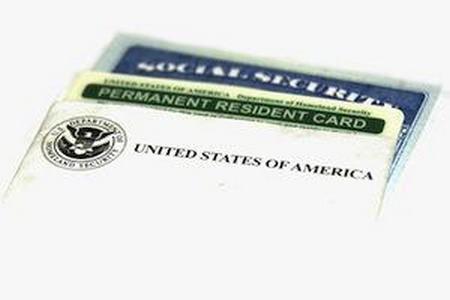Why Was My Permanent Residency Denied?
 There are multiple ways to apply for permanent residency, depending on your situation. Some may be able to adjust status from inside the United States, such as those who marry citizens. Others must apply abroad or can do so by mail. Regardless of how you apply, there are no guarantees, and sometimes your application will be denied. Many of the reasons given for denial can actually be overcome, provided that you comply with the appropriate procedures. Some, however, cannot, and the consequences must be dealt with.
There are multiple ways to apply for permanent residency, depending on your situation. Some may be able to adjust status from inside the United States, such as those who marry citizens. Others must apply abroad or can do so by mail. Regardless of how you apply, there are no guarantees, and sometimes your application will be denied. Many of the reasons given for denial can actually be overcome, provided that you comply with the appropriate procedures. Some, however, cannot, and the consequences must be dealt with.
Most Common Reasons & Specific Statutes
While it may seem like it, U.S. immigration law does not actually grant a consular officer broad discretion to deny visas for no reason. You will be provided with a reason for denial when you receive word from U.S. Citizenship & Immigration Services (USCIS) - the most common reasons are actually able to be overcome, for the most part, especially if you are applying from outside the U.S., as most immigrant spouses are. The Immigration & Nationality Act will group them differently based on the method you use to apply for permanent residency, but there are specific sections of the law that apply.
The top three reasons to deny a permanent residence application (or deny adjustment of status to permanent residence, which is technically a different administrative action) are health-related issues, existence of a criminal background, and the failure to meet the required expectations. All three of these potential pitfalls may, in theory, be remedied. Perhaps the easiest to fix is the latter; if you are asked for documents or other items, you must provide them, or a reasonable explanation as to why they are absent - for example, if you are asked for your school records, but your school was destroyed due to fighting in your home country, this is generally an acceptable reason to not produce the records. If you fail to do this, you will be denied.
The Consequences Of A Denial
If you are denied, there is not, contrary to popular belief, an automatic right to appeal the decision. However, you may be able to win a review of your petition, or it may simply be easier to re-apply. It may also happen that you will be placed in removal proceedings - if you are out of status, or were waiting for your petition to be approved before obtaining valid status, you may be sent a Notice to Appear (NTA). This signifies that you may need to invest time and energy in defending yourself from deportation.
If you are still in valid status, you will not be served with an NTA, but there are only two methods by which you may still be able to obtain a green card. One is via completing and submitting a Form I-290B, which is a request for review. USCIS will accept these, but they are not obligated to consent to the review. The other is to simply re-apply, ensuring that each requirement is met this time around. Depending on the situation for your family, this is often the best case scenario, especially since USCIS is unlikely to grant review in many instances.
Seek Experienced Legal Assistance
Regardless of the amount of effort put into an immigration application, sometimes it can go wrong. In these situations, consulting a knowledgeable attorney can make a big difference. The dedicated and compassionate Chicagoland immigration attorneys at Mevorah & Giglio Law Offices know the ins and outs of these cases, and we will work hard to obtain the best possible result for you and your family. Contact us today to schedule a free consultation.
Source:
https://www.uscis.gov/ilink/docView/SLB/HTML/SLB/0-0-0-1/0-0-0-29/0-0-0-2006.html
 English,
English,
 Spanish,
Spanish,
 Polish,
Polish,
 Urdu
Urdu













 Make a Payment
Make a Payment



